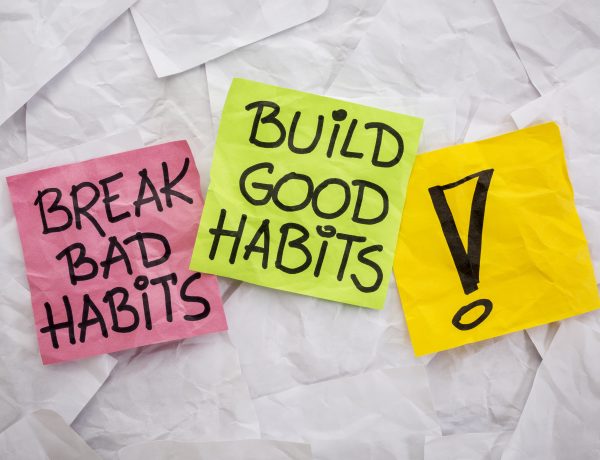Today we want to talk to you about the pros and cons of working out before bed. Regular exercise is a crucial part of your well-being, and can also be a really effective way of making sure you’re getting a good night’s sleep. While there are obvious benefits to getting regular exercise to your sleep cycle, some experts still debate what the best time of day to do this might be. While some suggest working out before bed might not be the best idea for your sleep cycle, others believe that doing so doesn’t make a significant impact on the quality of your sleep.
If working out before bed is what’s convenient for you, it’s still an improvement from no exercise at all. Here’s everything you need to know about working out before bed, from getting the right foam mattress for recovery, to the reasons you sleep better after exercise, along with what you can do to improve your chances at a good night’s sleep:
How Does Exercise Benefit A Good Night’s Sleep?
Photo by on Pexels
Having a regular workout routine can help you regulate your internal body clock, and make it a lot easier to get well rested through the night. Consistent exercise can contribute positively to getting a good night’s sleep, by regulating your body clock, reducing levels of anxiety, and promoting relaxation, all which can help with deeper, longer rest.
Exercise can therefore be especially beneficial to sleepers who struggle to get a good night’s sleep because of anxiety or stress. If you find yourself tossing and turning when it’s bedtime because of worry, you’ll find exercise can have a really beneficial impact on the quality and quantity of your sleep. This is because exercise boosts the amount of endorphins and serotonin in your body, which in turn helps when you’re trying to keep yourself calm for proper rest.
Can Working Out Before Bed Really Damage Your Sleep Cycle?
Newer research being done in sleep science has started to challenge the more traditional idea that working out before bedtime can actually damage the quality of your sleep. In one study conducted just last year, researchers found that moderate-intensity evening workouts didn’t affect quality of sleep.
Photo by LOGAN WEAVER on Unsplash
This is not the case with more high-intensity workouts, however. Strenuous physical activity can raise your core body temperature, and raise your heart rate too much, making it difficult to fall asleep if you try working out before bed.
Examples of higher-intensity workouts include running, swimming, cycling, and even doing some types of weight-lifting. If you don’t have too much time, but would still prefer to get a workout in before the night is out, then you might want to consider some light or moderate level activity- this could be something as simple as taking a walk or stretching, to more complex kinds of exercise, such as yoga or biking.
How Often Do You Need Exercise For Better Sleep?
It’s important to stay consistent with your workouts in order for you to reap the full benefits of a healthy sleep schedule. A solid benchmark to aim for on a weekly basis is 150 minutes – this amounts to an average of around 30 minute workouts, 5 days a week.
One of the easiest ways to keep consistent with your workout routine is by trying to find an exercise that works for your lifestyle, and is something you genuinely enjoy doing. It’s equally important to recover sufficiently after a day of putting your body under strain, and a foam mattress can help with this. Foam mattresses can be a great way to recover, and will help offset the additional strain you’re putting your body under the additional stress through the week. The best foam mattresses will provide that perfect balance between support and comfort, and keep you feeling well-rested through the night, and energized for the day ahead of you.
Other Ways To Improve Your Sleep Hygiene
Once you’ve decided whether you want to be working out before bed or if you want to do it first thing in the morning, it’s time to think about your sleep hygiene more holistically. Taking a holistic approach allows you to improve all aspects of wellbeing, rather than getting too focused on one aspect, since sleep requires a combination of changes to improve effectively.
One of the main ways you can improve your sleep is also one of the most obvious – optimizing your sleep set-up is integral to getting the cozy night’s rest you deserve. When you’re working out before bed, it’s especially important you have the right equipment to recover properly. Foam mattresses are a great option for sleepers who need that extra pressure-relief when they’re trying to get to bed.
Photo by on Pexels
Not only can a good mattress make for much speedier recovery, it can also help you get to sleep a lot easier. Foam mattresses are popular for a lot of reasons. Not only can the right foam mattress contour to your body and keep you well-supported through the night, it can also keep you feeling cozy through the night.
If you’re trying to choose between a foam mattress and any other kind, it’s worth trying to interrogate what it is you want. Foam mattresses tend to be a popular option for people who require pressure-relief. Other calming tactics to improve your sleep hygiene can include using essential oils in your bedroom, exchanging a scroll through your newsfeed for some bedtime reading, and taking a warm shower right before you get into bed. If you’re a hot sleeper, it’s also worth looking into whether you can get a cooing foam mattress for your sleep, since more traditional ones can trap heat.
If you are considering working out before bed, be sure to weigh the pros and cons before you begin. Find an exercise that you genuinely enjoy doing, be careful not to overextend yourself, and of course, find a way to integrate other healthy sleep hygiene practices into your sleep for the best chance at improving your sleep. With a little trial and error, you’re going to find a routine that works best for you, and gets you closer to achieving an optimum level of wellbeing.
Read more lifestyle and health articles at ClichéMag.com
Images provided by Creative Commons, Flickr, Unsplash, Pexels & Pixabay





